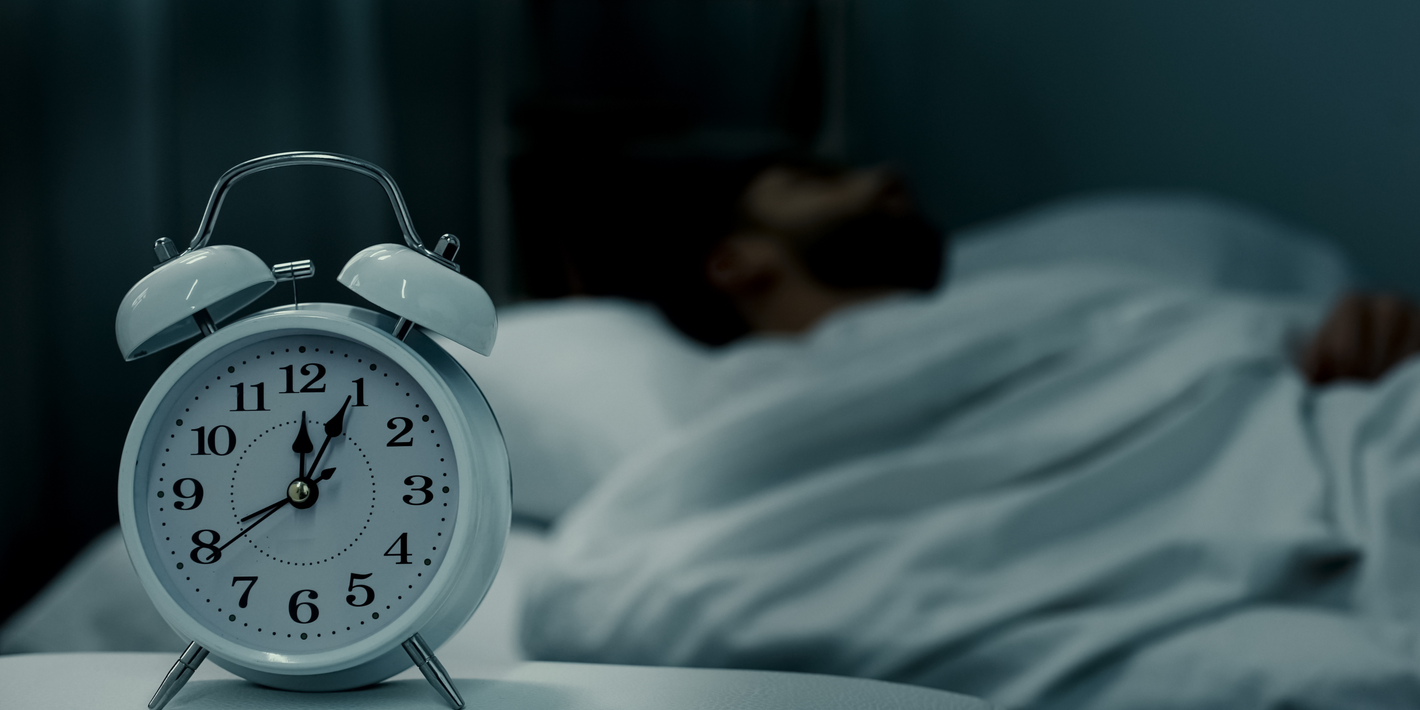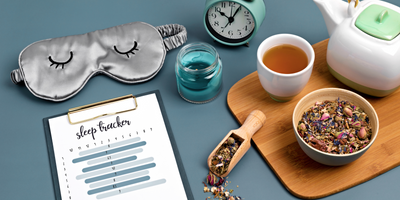
Unlock The Secrets of Slumber: A Comprehensive Guide to Healthy Sleep Habits
It is the melody of life that plays in cycles, and nowhere is this truer than in our sleep-wake patterns. Our bodies and minds are inextricably tied to this rhythm, for sleep, a seemingly simple act, is a complex and critical component of our overall health and wellbeing. This comprehensive guide aims to help you unlock the secrets of slumber, delving into the critical factors that affect our sleep and providing actionable insights for optimal rest.
The Circadian Rhythm: Understanding Your Body's Natural Sleep-Wake Cycle
Our bodies operate on an approximately 24-hour cycle, aptly termed the circadian rhythm. This rhythm influences not only when we sleep and wake but also our digestion, body temperature, and hormone production. Light exposure is a primary driver of our circadian rhythm. A lack of natural light during the day or excessive artificial light at night can disrupt this rhythm, leading to sleep problems.
Sleep Hygiene Checklist: Daily Habits to Optimize Your Sleep
A consistent sleep schedule, physical activity, and a quiet, dark, and cool bedroom are the hallmarks of good sleep hygiene. However, good sleep habits extend beyond the bedroom. Limiting afternoon caffeine, avoiding heavy meals close to bedtime, and winding down with a relaxing routine can prepare your body and mind for sleep.
Sleep Tracking Tools: Apps, Devices, and Wearables for Monitoring Your Sleep
Today, technology offers us a plethora of tools to monitor and improve our sleep. Wearables, such as smartwatches and fitness trackers, along with sleep apps, provide detailed insights into sleep cycles, heart rate, and sleep quality. However, while these tools can be informative, they should not become a source of anxiety. It's crucial to remember that sleep quality is not just about numbers but also about how refreshed you feel upon waking.
Foods That Promote Healthy Sleep: Nutrients, Supplements, and Mealtime Strategies
What we eat can significantly impact our sleep. Nutrients like magnesium and vitamins B6 and D play a role in the production of sleep-promoting hormones. Foods rich in tryptophan, like turkey, can stimulate serotonin production, leading to better sleep. Conversely, spicy or high-fat meals close to bedtime can disrupt sleep. Balancing meal timing and composition can support a healthy sleep cycle.
Stimulants and Sleep: Understanding the Effects of Caffeine, Alcohol, and Nicotine
Stimulants such as caffeine, nicotine, and even alcohol can drastically affect sleep. While caffeine's alerting effects are well-known, alcohol, though initially sedating, can disrupt sleep later in the night. Nicotine, too, can cause difficulties falling asleep and problems with sleep apnea. Moderation and thoughtful timing of these substances can minimize their impact on sleep.
Stress Management Techniques: Mindfulness, Relaxation, and Coping Strategies
High stress levels can lead to insomnia and other sleep disorders. Practices like mindfulness meditation, progressive muscle relaxation, and cognitive-behavioral stress management can help manage stress levels, promoting better sleep. Additionally, regular physical activity and time in nature can serve as effective stress-relievers.
Optimizing Your Sleep Environment: Lighting, Noise, Temperature, and Comfort
A conducive sleep environment is crucial for quality sleep. This includes reducing light and noise, maintaining a cool temperature (around 65°F or 18°C), and ensuring a comfortable mattress and pillow. Consider blackout curtains, earplugs, or white noise machines if needed.
Sleep Aids and Natural Remedies: Medications, Supplements, and Herbal Treatments
While sleep aids can be beneficial for short-term sleep issues, they're not a long-term solution and can potentially lead to dependency or side effects. Natural remedies like valerian root, melatonin, and lavender can aid sleep, but their effectiveness varies. It's always advisable to consult a healthcare provider before starting any new supplement or treatment.
The Science of Sleep Disorders: Insomnia, Sleep Apnea, and Other Common Conditions
Sleep disorders, including insomnia, sleep apnea, restless leg syndrome, and narcolepsy, can significantly affect sleep quality and overall health. Understanding these conditions is crucial to recognizing symptoms and seeking appropriate treatment. Insomnia involves difficulty falling or staying asleep, while sleep apnea is characterized by breathing interruptions during sleep. Restless leg syndrome causes an uncontrollable urge to move the legs, particularly at night, and narcolepsy involves excessive daytime sleepiness and sudden bouts of sleep. If you suspect a sleep disorder, it's essential to consult a healthcare professional for a proper diagnosis and treatment plan.
Sleep Therapy Options: Cognitive-Behavioral Therapy, Light Therapy, and Other Approaches
Cognitive-behavioral therapy for insomnia (CBT-I) can be highly effective in treating chronic sleep problems. CBT-I techniques help you change negative thought patterns and behaviors that interfere with sleep. Light therapy, which involves exposure to intense levels of light at specific times, can help reset the circadian rhythm, particularly for those with sleep phase disorders or seasonal affective disorder.
Exploring Sleep through Different Life Stages
Just as our bodies evolve with age, so do our sleep needs and patterns. Newborns and infants require more sleep, distributed throughout the day and night. As children grow, their sleep consolidates into a longer nocturnal period with decreasing need for daytime naps. Adolescents still require a significant amount of sleep, around 8-10 hours, despite often facing social and academic pressures that can impinge on their sleep time.
Adults generally need 7-9 hours of sleep, but this can vary based on individual differences and lifestyle factors. Pregnant women often experience changes in sleep due to hormonal shifts and physical discomfort. Older adults might face more fragmented sleep and have a harder time falling asleep due to changes in circadian rhythms and increased prevalence of health issues.
Sleep and Mental Health: A Complex Interplay
Sleep and mental health are deeply intertwined. Conditions like anxiety and depression can lead to sleep problems and vice versa. Poor sleep can exacerbate mental health conditions, leading to a vicious cycle that can be challenging to break. Therapies like CBT-I can be effective in such cases, addressing both sleep and mental health issues together.
The Role of Healthcare Professionals
While personal efforts towards improving sleep are crucial, healthcare professionals play a vital role in diagnosing and treating sleep disorders and providing guidance for sleep improvement. This can involve a range of specialists, including primary care physicians, sleep specialists, psychologists, and dietitians.
The Future of Sleep Health
With advancements in technology and research, our understanding of sleep continues to evolve. From the development of more accurate and accessible sleep tracking tools to breakthroughs in the treatment of sleep disorders, the future of sleep health holds much promise.
Exercise and Sleep: A Vital Connection
Exercise is an often-overlooked component of good sleep health. Regular physical activity can help you fall asleep more quickly, sleep more deeply, and wake up feeling more refreshed. However, timing is important. While morning or afternoon workouts can boost daytime energy and nighttime sleepiness, intense exercise close to bedtime can have the opposite effect, as it stimulates the body and raises core temperature.
Sleep, Work, and Society
Our societal structures also significantly impact our sleep. The 9-to-5 work schedule doesn't align with everyone's natural sleep-wake patterns, and shift work can severely disrupt the circadian rhythm. Furthermore, societal pressures often prioritize productivity over rest, leading to a culture of sleep deprivation. Advocacy for flexible work schedules and a societal shift in attitude towards sleep can help counter these issues.
Personalizing Your Sleep Strategy
While general guidelines provide a useful starting point, it's essential to personalize your sleep strategies. Pay attention to your body's signals. If you feel alert and productive after 6 hours of sleep, you might not need the often-recommended 8 hours. If you're a night owl forced to wake up early, consider if you can adjust your schedule to align better with your natural tendencies.
The Role of Genetics in Sleep
Genetics also play a role in our sleep. Some people are genetically predisposed to be morning larks or night owls, and genetic factors can also influence susceptibility to sleep disorders like insomnia and sleep apnea. While we can't change our genes, understanding their influence can help us make more informed decisions about our sleep habits.
Summary
The journey to unlocking the secrets of slumber is a dynamic and multi-layered process. Sleep, often overlooked, plays a vital role in our overall health, mental wellbeing, and quality of life. From understanding the basic biological mechanics, such as the circadian rhythm, to implementing good sleep hygiene practices and optimizing our sleep environment, every aspect contributes to the quality of our rest.The impact of our dietary habits, use of stimulants, and the role of exercise in promoting restful sleep further reinforces the interconnectedness of our lifestyle choices and sleep health. Meanwhile, the advent of sleep tracking tools and the exploration of various sleep aids and therapies can offer valuable support on this journey.
Our exploration doesn't stop here, as we delve into the complexities of sleep disorders, the influence of stress, and the critical role of healthcare professionals in diagnosing and treating sleep-related issues. The significance of sleep varies across different life stages, underlining the need for a personalized approach towards sleep health.
Furthermore, societal and work structures, along with our genetic makeup, can significantly influence our sleep patterns and tendencies. However, with continued research and increasing awareness, we are better equipped than ever to address these challenges and promote a culture where restful sleep is valued and prioritized.
Indeed, the quest to 'unlock the secrets of slumber' is not just about improving our sleep but about enhancing our overall wellbeing. The road may require patience, consistency, and a willingness to experiment and learn, but the reward is a restful slumber and the multitude of benefits that come with it. So, as we continue to delve deeper into the world of sleep, let's remember to value our rest, listen to our bodies, and aim for a healthier, happier, and well-rested future.
Deep Sleep Support
We’ve created a Deep Sleep Supporting supplement with a combination of the best available ingredients proven to assist in a better night’s sleep. This supplement is an easy-to-mix, great-tasting powder, offering a therapeutic dose of the nutrients your body needs to relax and fall asleep. Learn more about it here.









